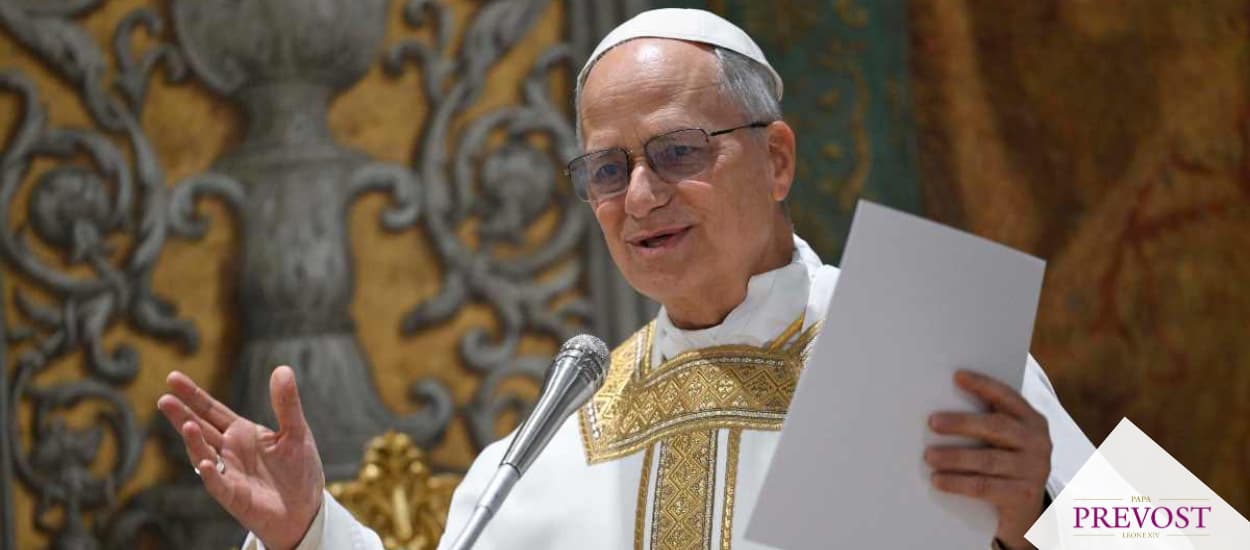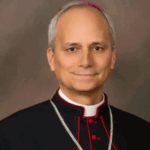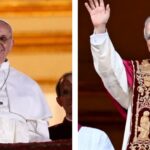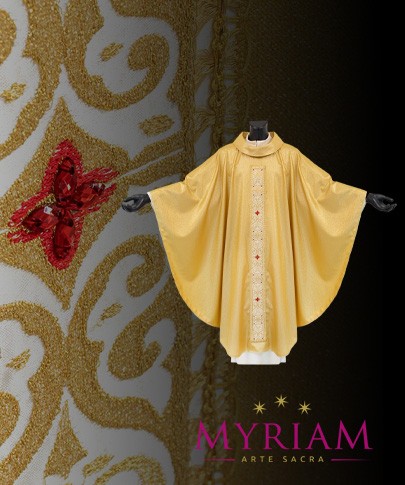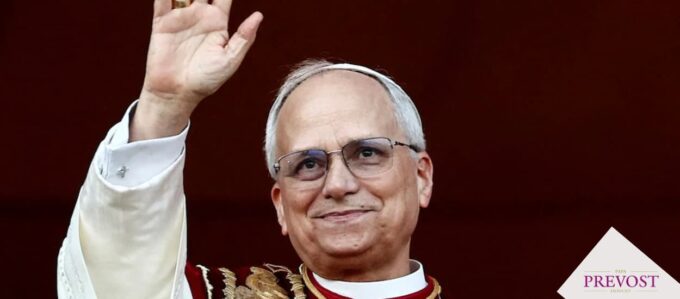The election of Pope Leo XIV stirred emotion and hope among millions of faithful worldwide. With his authoritative yet approachable figure, the new Pontiff spoke for the first time from the central loggia of St. Peter’s Basilica, delivering a powerful and meaningful message.
Let’s now look at the full text of the inaugural speech and all the themes addressed by the Holy Father, starting with peace and dialogue between cultures and believers.
The Context of Pope Leo XIV’s Inauguration
Pope Leo XIV was elected after a brief but thoughtful conclave. According to Vatican sources, Prevost’s election took place after the fourth ballot, supported by a large majority of cardinals eager for renewal while remaining in continuity with Pope Francis’s work.
His birth name is Robert Francis Prevost, and he is the first American Pope in the history of the Church. Originally from Chicago and 69 years old, he brings with him a wealth of missionary and pastoral experience, especially in Latin America.
After more than twenty years as a missionary in Peru, he served as the Bishop of Chiclayo from 2015 to 2023. Called to Rome by Pope Francis, he led the Dicastery for Bishops, a central role in the Roman Curia that affirmed his balance between spiritual discernment and ecclesial vision.
The announcement of his election came in the late afternoon of May 8, with the much-awaited white smoke, accompanied by the joyful sound of St. Peter’s bells.
His speech on peace was at the heart of his inaugural message: a call for reconciliation and unity among peoples, in the sign of the Gospel. He also offered an affectionate greeting to his Latin America, which the Pontiff considers “a second homeland,” as a testament to the strong spiritual bond he built during his mission.
The Full Speech: The First Words of the American Pontiff
Pope Leo’s message was filled with references to the Gospel and calls to contemporary issues. Prevost particularly emphasized:
- the urgency of peace between nations and people;
- the importance of a united, synodal Church, always seeking charity;
- the commitment to those who suffer and the forgotten.
Here are the words spoken by the Holy Father in his first speech:
“Peace be with you all!”
Dear brothers and sisters, this is the first greeting of the risen Christ, the good shepherd who gave his life for God’s flock.
I too would like this greeting of peace to enter your hearts, reach your families, all people, wherever they are, all nations, all the earth. Peace be with you. This is the peace of the risen Christ, an unarmed peace, a disarming peace, humble and persevering. It comes from God.
God who loves us all, unconditionally.
We still remember, in our ears, that weak but always courageous voice of Pope Francis, blessing Rome. The Pope who blessed Rome, and gave his blessing to the entire world, that morning, on Easter day. Allow me to follow that same blessing: God loves us, God loves you all, and evil will not prevail: we are all in God’s hands.
So, without fear, united hand in hand with God and with each other, let us move forward.
We are disciples of Christ, Christ goes before us: the world needs His light. Humanity needs Him, as the bridge to be reached by God and His love. Help us too, and each other, to build bridges with dialogue, with encounter, uniting all to be one people, always in peace.
Thanks to Pope Francis.
I would also like to thank all the cardinal confreres who chose me to be the successor of Peter, and walk together with you, as a united Church, always seeking peace, justice, and always working as men and women faithful to Jesus, without fear, to proclaim the Gospel, to be missionaries.
I am a son of Saint Augustine, an Augustinian, who said “with you I am Christian, and for you I am bishop.” In this sense, we can all walk together towards that homeland that God has prepared for us.
Special greetings to the Church of Rome.
We must seek together how to be a missionary Church, a Church that builds bridges, dialogue, always open to receive, like this square with open arms, all those in need of our charity, presence, dialogue, and love.
Knowing Pope Prevost’s biography, it’s no surprise that he delivered his speech in Spanish to his Peruvian community, where he served as a key figure during his long missionary experience:
“And if I may, I would like to send a word of greeting to all, and especially to my beloved diocese of Chiclayo, in Peru. There, a faithful people accompanied their bishop and shared his faith, and gave so much to continue being a Church.”
The message concluded with a prayer to the Madonna:
“To all of you, brothers and sisters, from Rome, Italy, and around the world, we want to be a synodal Church, a Church that walks, always seeking peace, charity, and especially being close to those who suffer.”
Today is the day of supplication to the Madonna of Pompeii. Our mother, Mary, always wants to walk with us, be close, and help us with her intercession and love. Let us pray together for this new mission for the whole Church, for the peace of the world, and ask this special grace from Mary, our mother.”
A New Path for the Church
At the end of his speech, Pope Leo XIV gave the solemn Urbi et Orbi blessing, the first official act of his pontificate. In it, he invoked God’s mercy for all humanity.
The silent reverence of the faithful turned into applause and emotion, testament to the strong spiritual connection the new Pope had established from his first greeting.
Pope Leo XIV’s first intervention marks the beginning of a new phase for the global Catholic community and a reform of the Roman Curia in line with the path already initiated by Pope Francis. His words reflect the desire to preserve the Church’s Tradition while addressing, with courage and discernment, the epochal changes of our time, such as artificial intelligence, the climate crisis, and the growth of social inequalities.
Hope and shared responsibility: this is how Pope Leo XIV begins his pontificate—deep and concrete pastoral vision, calling the whole Church to walk united in the Gospel, with its eyes on the needs of the present and its heart always inspired by Christ’s example.

